As regulations multiply and become more intricate, the challenges of maintaining compliance grow exponentially. Companies are not just battling with understanding and implementing these rules; they're also grappling with the potential consequences of non-compliance. These consequences extend far beyond monetary penalties, affecting operational efficiency, market reputation, and long-term business viability.
This growing complexity underscores the critical need for robust compliance strategies and tools. Reacting to regulatory changes is no longer enough; businesses must proactively manage their compliance efforts to stay ahead of potential issues and protect their interests.
The True Cost of Non-Compliance
The financial implications of non-compliance are staggering. According to a study conducted by Ponemon Institute and sponsored by Globalscape, since 2011, non-compliance costs have increased by 45%. The average cost can range from $14 million to almost $40 million.
But the impact goes far beyond just monetary penalties. Non-compliance often leads to:
- Business disruptions
- Productivity losses
- Revenue impacts
In fact, the cost of non-compliance can be up to three times more than the cost of maintaining or meeting compliance requirements.
Perhaps even more damaging is the potential for reputational harm and erosion of customer trust. These intangible costs can have long-lasting financial repercussions that far outweigh any immediate fines or penalties.
Common Compliance Challenges
Organizations face several hurdles in their quest for compliance. One of the most significant challenges is keeping pace with evolving regulations. As laws like GDPR, HIPAA, and CCPA continue to evolve, businesses struggle to stay updated and compliant. This constant change requires ongoing vigilance and adaptability, often stretching resources thin.
Another major obstacle is managing large volumes of data. With the exponential growth of digital information, ensuring consistent policy enforcement becomes increasingly challenging. Companies must not only store this data securely but also manage it in a way that aligns with various regulatory requirements. This task becomes more complex as data volumes grow and regulations become more stringent.
Perhaps most critically, many organizations lack visibility into their compliance status. Without real-time insight, it becomes difficult to identify and address issues proactively. This lack of visibility can lead to blind spots in compliance efforts, potentially resulting in unintended violations and subsequent penalties.
How the Right Tools Can Help
Investing in the right compliance tools can significantly ease these challenges. By automating compliance processes, businesses can reduce manual errors and save valuable time. Automation allows for consistent application of compliance policies, reducing the risk of human error and freeing up staff to focus on more strategic tasks.
Centralized policy management is another key benefit of modern compliance tools. A unified platform for managing policies ensures consistency across the organization, making it easier to implement and enforce compliance measures. This centralization also facilitates quicker updates when regulations change, ensuring the business stays ahead of compliance requirements.
Real-time monitoring is a crucial feature that allows companies to stay ahead of potential compliance issues. By continuously overseeing systems and processes, businesses can identify and address compliance risks before they escalate into serious problems. This proactive approach can save significant time, resources, and potential penalties in the long run.
Lastly, simplified reporting and auditing capabilities streamline a complex and time-consuming process. Easy-to-use reporting tools can generate the necessary documentation for both internal reviews and external audits, reducing the burden on staff and ensuring accuracy in compliance reporting.
Key Features to Look for in Compliance Tools
When evaluating compliance solutions, several key features should be considered. First and foremost, user-friendly interfaces are essential. Compliance tools should be accessible to both technical and non-technical users, ensuring that everyone in the organization can contribute to compliance efforts effectively.
Integration capabilities are another crucial factor. Look for solutions that can seamlessly integrate with your existing systems. This integration ensures that compliance measures can be applied across all relevant platforms and processes without creating silos or gaps in coverage.
Customizable workflows are also important, as your compliance needs are unique to your organization. Your tools should be adaptable to your specific regulatory environment, industry, and internal processes. This flexibility allows you to tailor your compliance efforts to your exact needs, improving efficiency and effectiveness.
Robust reporting features are non-negotiable in today's regulatory landscape. Comprehensive reporting capabilities are crucial for both internal audits and external reviews. Look for tools that can generate detailed, customizable reports that provide clear insights into your compliance status.
Finally, given the sensitive nature of compliance data, strong security measures are essential. Your compliance tools should incorporate robust security features to protect sensitive information from unauthorized access or breaches. This not only helps maintain compliance but also protects your organization's reputation and customer trust.
GFI Software's Compliance Solutions
GFI Software offers a range of products designed to address compliance challenges effectively:
- GFI LanGuard: A network security scanner with vulnerability and patch management capabilities, helping achieve regulatory compliance through automated patching.
- GFI KerioControl: An all-in-one next-generation firewall and Unified Threat Management (UTM) solution, providing intrusion detection and prevention, antivirus, VPN, and content filtering.
- GFI MailEssentials: An email security and anti-spam solution that helps enforce granular, user-based email content policies.
- GFI Archiver: A server archiving solution for productivity, management, and compliance, helping limit legal risk and achieve compliance through comprehensive email, file, and calendar archiving.
- GFI KerioConnect: An enterprise-class messaging and collaboration solution offering spam filtering and virus protection with flexible deployment options.
The ROI of Investing in Compliance Tools
Investing in robust compliance tools offers significant returns:
- Cost savings: By avoiding non-compliance penalties and associated business disruptions, organizations can save millions.
- Improved efficiency: Streamlined compliance processes lead to enhanced productivity across the organization.
- Competitive advantage: Strong compliance practices not only mitigate risks but also enhance your reputation, giving you an edge in the market.
Compliance is not just about avoiding fines; it's about protecting your business interests and maintaining your customers' trust. By investing in the right tools, you can ensure compliance, avoid costly repercussions, and position your business for long-term success.
Don't leave your compliance to chance. Explore GFI's compliance solutions today and take the first step towards better business outcomes.
Related Posts
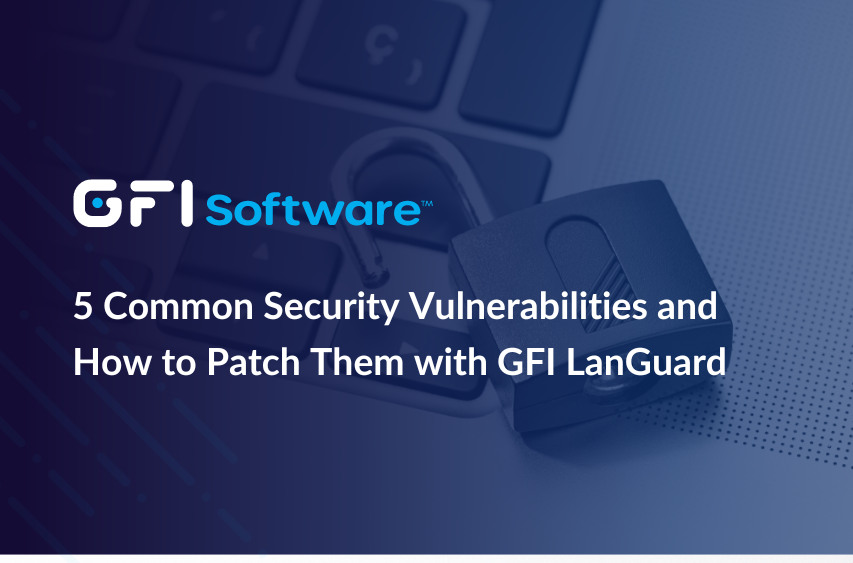
Jun 28, 2024
5 Common Security Vulnerabilities and How to Patch Them with GFI LanGuard
Discover the top 5 security vulnerabilities threatening your network and learn how GFI LanGuard's cutting-edge features, including AI-powered insights, can help you patch them effectively. This must-read guide offers practical solutions for IT pros and business owners alike, ensuring your network stays secure against current and emerging threats.
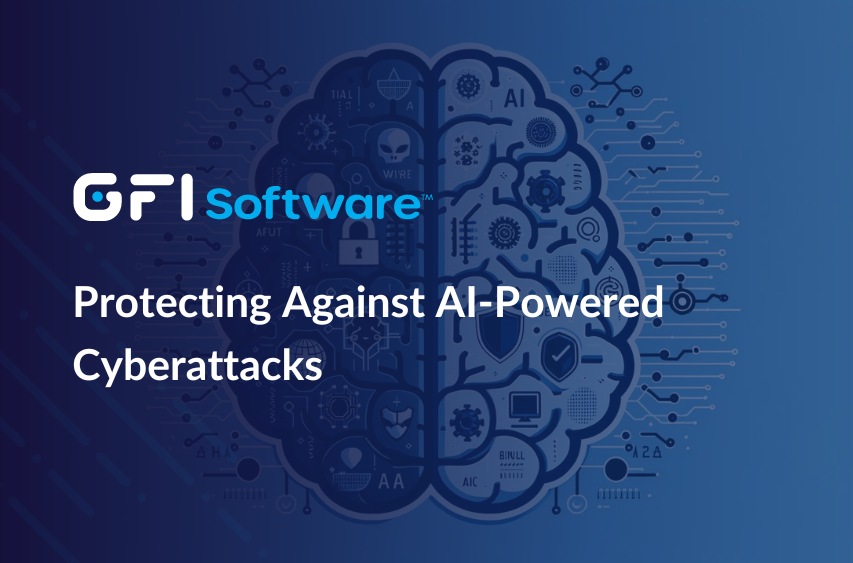
Apr 11, 2024
Outsmarting the Machines: Protecting Against AI-Powered Cyberattacks
AI is revolutionizing cybersecurity, but it's a double-edged sword. In this post, we explore the growing landscape of sophisticated, AI-powered cyber threats like morphing malware and hyper-personalized phishing scams.We also dive into how organizations can harness AI's immense potential to bolster defenses through advanced threat detection, autonomous response capabilities, and predictive vulnerability analysis.
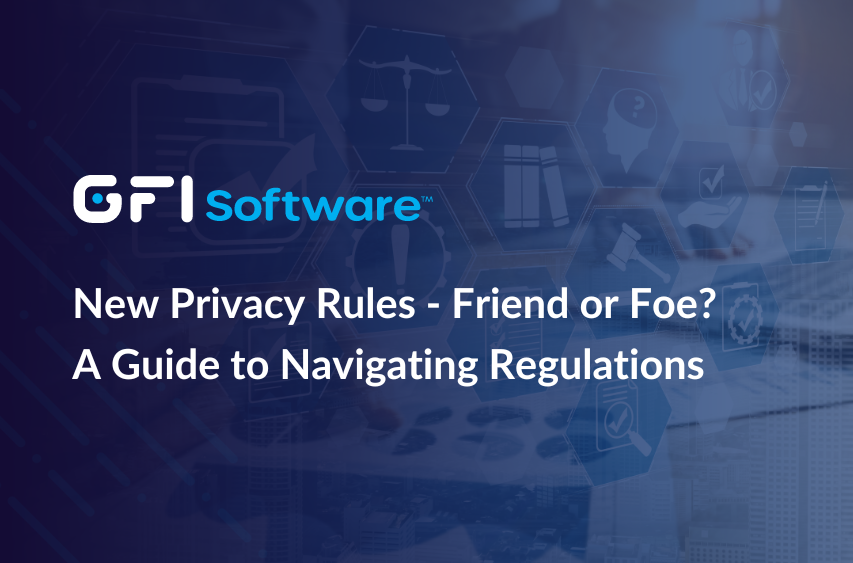
Apr 4, 2024
New Privacy Rules - Friend or Foe? A Business Guide to Navigating Regulations
Privacy laws are evolving; businesses must adjust. Learn key rules and how GFI ensures email/network security compliance.
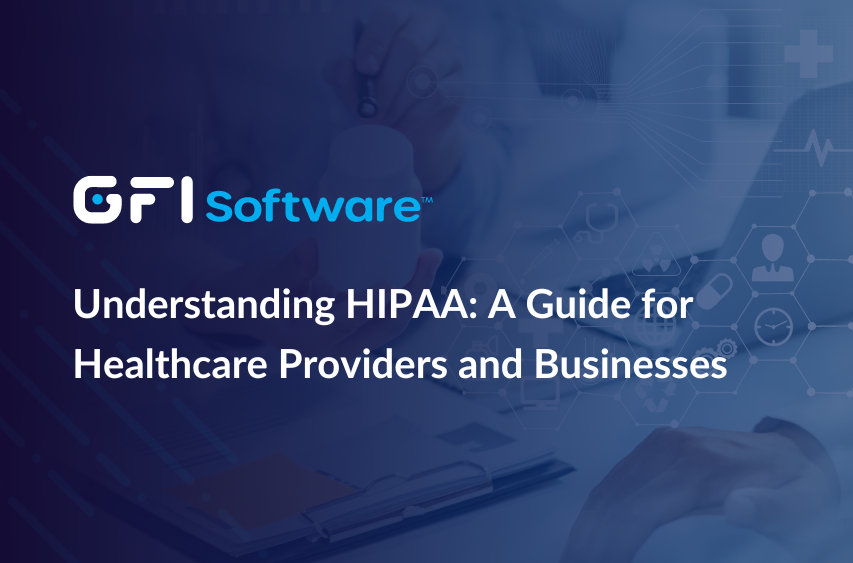
Mar 5, 2024
Understanding HIPAA: A Guide for Healthcare Providers and Businesses
If you're a healthcare provider or business handling protected health information, understanding HIPAA is crucial. This guide demystifies HIPAA's requirements for safeguarding patient data and outlines best practices for compliance. We'll delve into risk assessments, employee training, breach prevention, and how GFI Software can help you avoid potential penalties and protect your practice.
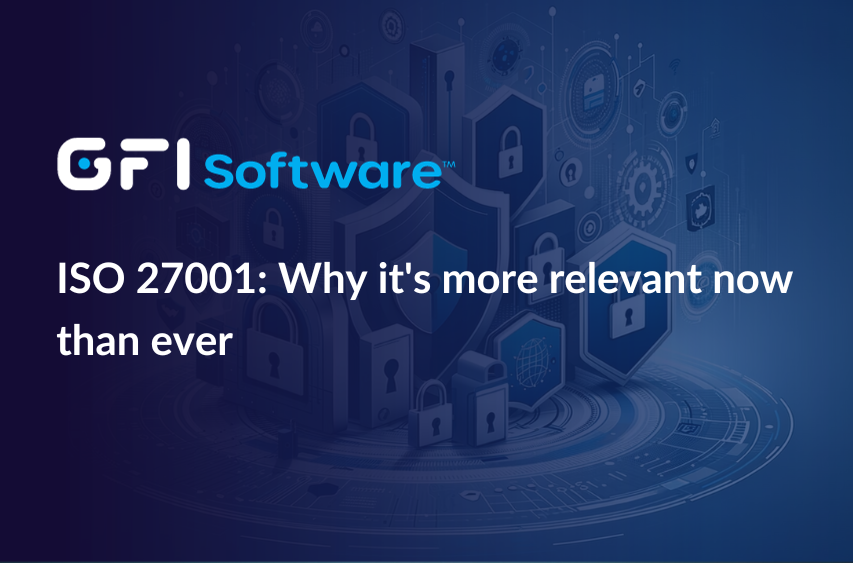
Dec 22, 2023
ISO 27001: Why it's more relevant now than ever
Discover the importance of ISO 27001 in addressing today's cybersecurity challenges and the role of GFI Software's solutions in achieving compliance. Our latest post provides a comprehensive overview of ISO 27001's relevance, its alignment with emerging technologies, and essential steps for effective implementation.
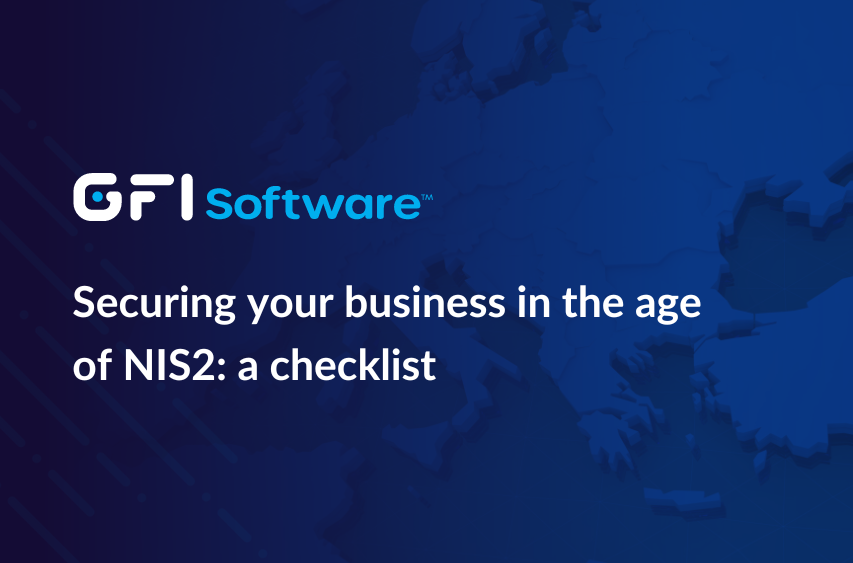
Dec 11, 2023
Securing your business in the age of NIS2: a checklist
NIS2 accentuates the importance of cybersecurity for essential and digital service providers within the EU. To meet the security standards, understanding and conforming to its guidelines is fundamental. This checklist guides you through this updated regulatory terrain and showcases how tools like GFI LanGuard can be instrumental in this journey.